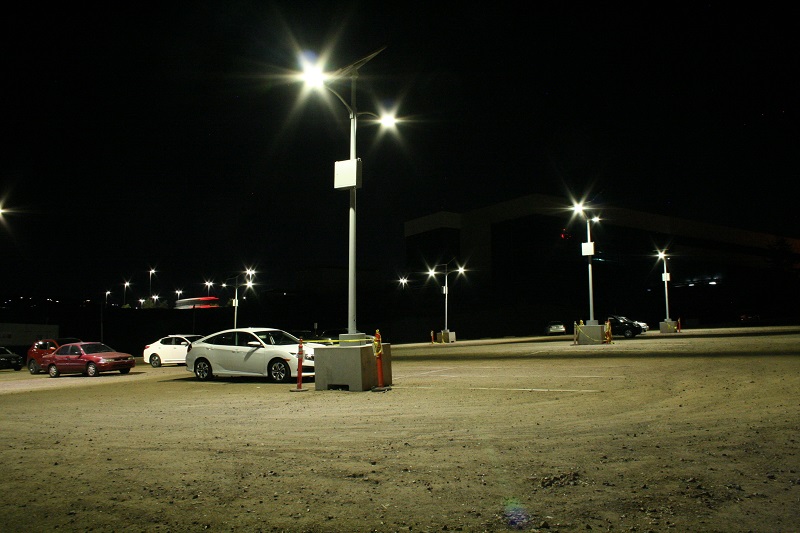Is Solar Energy Better than Electric?Posted by Stephen Shickadance in Industry News. The Basics.
In their 2020 World Energy Outlook, the International Energy Agency (IEA) found that solar energy has become the cheapest source of electricity in history, helping prove that solar is more effective than electric. With generation costs dropping below $20 per megawatt hour (MWh) and efficiencies reaching unprecedented heights and climbing, is solar energy better than electric? Well it's proving that it not only has the capacity to carry baseload power demands, but that it’s also cost-effective enough to do so. Even with the now-proven merits of solar energy, many have been hesitant to move away from fossil fuels. From reliability concerns to reluctance about making the upfront investment, critics of solar remain unconvinced. While there are limitations to photovoltaic technology—and all power sources have their drawbacks—the electrical output, financial savings, and environmental friendliness of solar makes it a key component of the global energy mix. Solar Energy vs. Traditional EnergyWhile both solar and traditional power achieve the same end-user effects, there is one key difference between the two that has far-reaching implications: means of generation. Unlike traditional power generation, solar energy is converted into electricity as the Sun's photons excite a semiconductor’s electrons to create an electric current. This is known as the photoelectric effect, and while other means of solar power generation exist (like solar thermal), solar photovoltaics—or solar PV—is the process by which solar derives electricity from the Sun. The difference between the two processes has impacts, and understanding them will give a better foundation for comparing the strengths of solar energy to traditional energy sources: Is solar energy better than electricTraditional electricity generation is subject to the limits of thermodynamics, resulting in an efficiency of about 40% — and that's on a good day. While solar energy has other limiting factors, the difference in generation mechanism means that it is not bound by thermodynamic laws. The result is that while current mainstream solar PV efficiency is around 25% — the most innovative cells have an efficiency of 47% — this number could be expected to increase as technology improves, yielding even greater power output. AvailabilityWhile conventional power production can take place anywhere a turbine can be spun, solar energy is more sensitive to location. Less sunlight is required to produce adequate electricity from solar than many expect (one of the world's leading solar producers is Germany, a nation with only moderate insolation totals), and a minimum amount of consistent solar exposure is needed for PV to work. However, when the ease of decentralized electrical installation that comes with solar is compared to the cumbersome process of building a conventional power plant, the availability advantages of each appear to differ depending on the need. ReliabilityBecause factors like insolation and weather can impact solar power output, traditional energy sources are frequently thought to outperform PV in reliability. It should be noted, though, that most solar PV systems come with batteries to mitigate reliability concerns, and as power storage technology continues to improve, reliability will become less and less of a drawback for solar. Benefits of solar energy to the Environment From hydroelectric dams that drastically alter the surrounding terrain to coal-fired power plants that emit harmful pollutants, solar energy is not only far cleaner than traditional power production but is also one of the cleanest power sources known to man. Solar energy vs fossil fuelsThe previous inefficiency of photovoltaics coupled with their higher upfront installation costs once made solar electricity more expensive than that of traditional power sources, but that is no longer the case. Government incentives like net metering, tax credits, and rebates have leveled the playing field, making solar a more cost-effective energy source than fossil fuels. In 2020, the cost of electricity ranged from 5–17 cents per kWh for that derived by fossil fuels, but was only 3–6 cents for electricity made from solar.  Solar Energy ComparisonsWhat are the main disadvantages to solar energy, if any?Once the many benefits of solar energy are understood, a clearer picture emerges of how it compares to other sources. Here's how it stacks up against the competition.
While other comparisons could be drawn between energy sources like nuclear, natural gas, or biomass, many of these share similar weaknesses with the above sources, showing that the relative efficiency, availability, and environmental friendliness of solar make it a desirable option among other power sources. Why is solar energy good or bad?The primary advantages and weaknesses of solar energy can be shown by comparing it to other power sources, but a few other factors are worth noting. Why is solar energy bad?One often-mentioned criticism of solar is that the energy and resources that go into producing solar panels make it less environmentally friendly than people think. Although this was once true, manufacturing processes have been improved so that this is no longer the case. Some critics have also pointed to the fact that some photovoltaic technology (like thin films) requires rare earth metals to operate, but most mainstream PV modules do not use rare earth metals at all — and some PV designs even incorporate organic material for even greater sustainability. Are solar panels expensive to maintain?One of the greatest (and often unmentioned) advantages of solar energy is that solar panels are relatively easy to maintain. It is important to place them in an area with high solar exposure, but after that, little more than an annual professional cleaning is needed to keep them running at peak performance. Do you really save money with solar power?As mentioned earlier, a number of cost-saving mechanisms have been implemented to offset the upfront investment of commercial solar installation, and helping push the idea that solar energy is better than electric and traditional forms of energy. Many vary by state, but some tax incentives include:
Sources:
Industry News
The Basics
|
ArchivesNo Archives Categories
Want More Info? |
LATEST NEWS & ARTICLES
